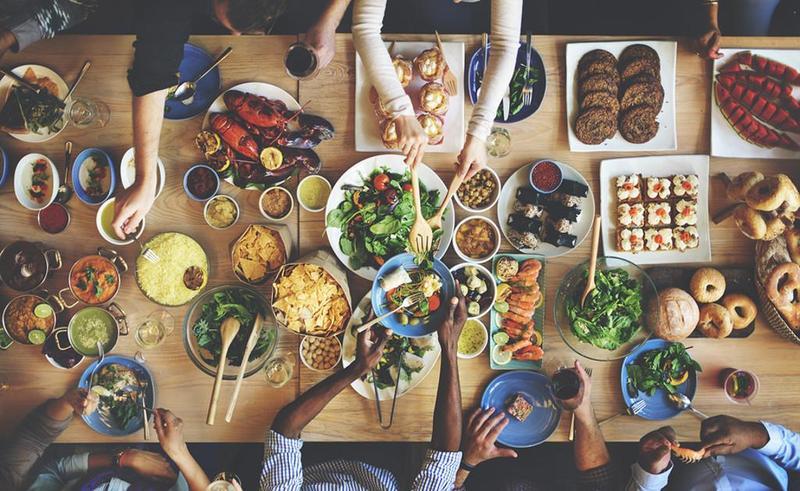How Overeating Scientifically Stops You From Feeling Full
How Overeating Scientifically Stops You From Feeling Full
If you think that overeating feels like a vicious cycle that only gains more momentum the more you do it, you’re not alone. Science suggests that overeating could be more than simply just a bad habit, with new research out of Thomas Jefferson University proving that the hormonal response needed to help us feel full is reduced when we eat too many calories in one sitting.
The study was conducted on mice, so this still requires testing on humans, but the findings suggest that the same effects may be taking place in our own bodies too since both mice and humans produce uroguanylin in the small intestine — a hormone that sends signals to the brain to let it know that the body is being fed and when it’s full. For the study, scientists decided to overfeed mice in order to look at how the brain and digestive system communicated in an overfed state.
What typically happens when we eat is we feel full when we’ve had enough — thanks in large part to the uroguanylin hormonal pathway. In the case of the overfed mice, however, the scientists found that the small intestine stopped producing uroguanylin, despite the uroguanylin receptors within the brain remaining intact (and even increasing in number). This halt in hormone production essentially blocked the pathway that creates that feeling of fullness.
What’s even more fascinating about this particular study is that uroguanylin production stopped when the experiment was conducted on both lean and obese mice, suggesting that the vicious cycle and detrimental effects of overeating could potentially be experienced by anyone regardless of how healthy or unhealthy they may be. The biggest factor at play here is the large amount of calories consumed in a short period of time.
In order to dig deeper to find out why uroguanylin production stopped, the scientists examined a cellular organelle called endoplasmic reticulum (ER), which plays an important role in hormone regulation and can be impaired when put under stress. When the mice were given a chemical to cause ER stress, uroguanylin production stopped in a similar way that it did when they were overfed. But when the mice were given a chemical to relieve stress, uroguanylin production resumed.
The scientists concluded that excessive calorie consumption seems to stress the cells of the small intestine enough that it stops producing uroguanylin, which is necessary for the brain to get the signal that the belly is full. Helpful information for us, but a lot more research on the uroguanylin hormone pathway is needed to determine just how important of a role it plays in reversing and preventing diet-related health risks and conditions like obesity.
So, what’s the lesson here? Well, it’s clear that there’s no one-size-fits-all calorie limit for everyone, and even if you do decide to calculate a daily personal limit to adhere to based on stats like your age, gender, weight and activity level, the best things you could probably do to avoid falling into the endless cycle of overeating is make a conscious decision to slow down your eating and learn how to listen to your body.
Make healthy choices that you genuinely like. Take your time to enjoy what you eat. Practice mindful eating. And lastly, find ways to reduce stress so you don’t turn to food. You’ll be less likely to overeat and you won’t even need to restrict yourself to low-calorie rabbit food.
By: Elise Moreau For Care2
Be the first to post a message!
